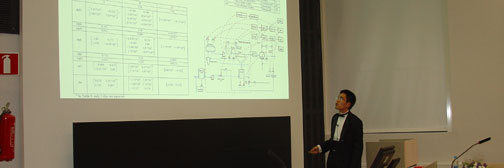| | Year 2014
Marjut Pauliina HirvonenSupply Chain Optimization in the Business Area of Renewable Fuels
The companies of the process industry have been forced to optimize their supply chains in order to gain a competitive edge while environmental legislation has been tightened and the chains have become more complex. Thus, the integration of supply chain management is seen as an interesting, even essential, area in the optimization of the whole supply chain while causing significant challenges for the companies. This study examines the characteristics of supply chain management in the new, unique business area of Renewable Fuels and aims at finding a suitable method for optimizing the supply chain, thus also supporting the development and integration of supply chain planning tools.
The optimization methods studied by literature are divided into linear, nonlinear, dynamic, stochastic, agent- and equation-based, multi-objective, and global programming. These methods are evaluated by calculating a weighted grade for each method in terms of the following criteria: (l) accuracy, (2) usability and consideration of uncertainty, and (3) suitability for strategic, tactical, and operational planning. The methods are graded by each criterion in the range of three values: 1 (poor), 2 (average), and 3 (excellent). In addition, the criteria are weighted from the following three viewpoints of supply chain management: (1) supplies and sales, (2) production, and (3) transportation. These approaches are weighted as well by evaluating their effects on the profitability of the supply chain.
The results of this study show that linear programming achieves the most significant weighted grade of 2.4 while dynamic and stochastic methods achieve the grade of 2.2 and global programming 2.1. The variability of research results is examined by the sensitivity analysis of the Monte Carlo method with 30 % relative changes of weights for the criteria and viewpoints of supply chain management, thus indicating small variability for the research results of dynamic and stochastic methods, average variability for linear programming, and high variability for global programming.
The results indicate the suitability of linear programming but suggest the more improved consideration of uncertainty for the supply chain optimization of Renewable Fuels. As linear programming is generally capable of factoring in uncertainty, future development should focus on the stochastic applications of linear programming from an integrated, global perspective.
Thesis electronical version can be downloaded from here
This info last modified 27 Apr 2024 by Jukka Kortela
|

